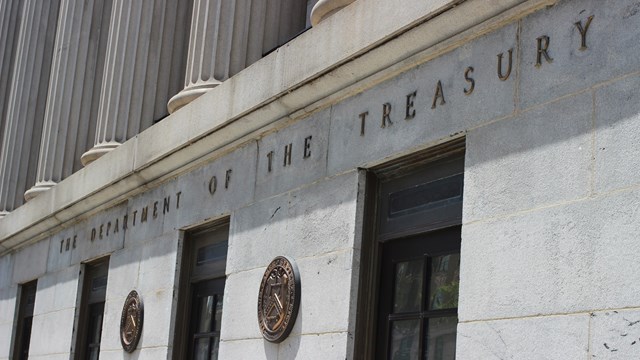A new generation of young professionals is looking for a means to enter the housing market. Condominiums are an attractive price point and form of ownership for such new generation. To meet this demand, owners of rental housing are, in increasing number, considering converting their currently rented properties into condominiums, to be sold for a premium. A number of considerations enter into this decision, not the least of which is the applicable law.
In 1983, the Massachusetts legislature passed The Massachusetts Condominium Conversion Statute. Broadly speaking, it creates hurdles for owners to jump before converting their property to condominiums, as well as consequences for landlords who fail to jump these hurdles.
What Does This Mean?
Any owner who currently rents residential housing is familiar with the mass of law governing the landlord-tenant relationship, but a set of rules apply on top of those when an owner decides to convert a rental property to condominiums. Aspects which were formerly limited only by the landlord-tenant law become governed by the Condominium Conversion Statute, which restricts a landlord’s acts to a greater degree. The law also introduces new and different restrictions on landlords and their relationship with their tenants.
Restrictions on Landlords
TIMELINES- The limitation on condo conversion that is perhaps most acutely felt by an owner is the lengthy time period that the law provides for tenants between finding out that their rental is being converted and the termination of their tenancy. The law requires owners to extend current leases to one year from the date of notifying tenants of conversion, and places limits on any rent increases associated with the extension.
RIGHT OF FIRST REFUSAL – Any owner converting their property must give their current tenants a ninety day right of first refusal. That is, the current tenant must have the opportunity to purchase the soon-to-be-converted rental unit that they occupy before it is offered to the general public. The landlord must offer the converted unit on the same terms and conditions than those which the owner extends to the general public.
RELOCATION ASSISTANCE– Landlords must provide their tenants relocation assistance in the form of $750 to a tenant to assist with moving expenses within ten days of the tenant having vacated the unit. The law requires the tenant to provide documentation to prove their costs.
PROTECTED TENANTS– Certain tenants are provided further and increased protections by the law: those who are disabled, elderly, or of low or moderate income. The protected tenants, for example, receive two year extensions on their leases when notice of conversion is given. Their maximum relocation assistance payment is increased to one thousand dollars, and their landlord must assist them with locating comparable housing.
PENALTIES– The law provides for harsh penalties to an owner who converts his or her property without clearing the hurdles: a minimum $1,000 fine, or a minimum 60 days in jail per offense, and each unit converted in violation of the act is considered a separate offense.
EXCLUSIONS– Buildings of less than four residential units are exempt, whether or not the owner occupies one of these units.
Municipal Restrictions
The Massachusetts Condominium Conversion Statute allows individual cities to pass their own condominium conversion rules that supersede the state’s rules. So far, several cities have taken this route including Boston, Brookline, Chelsea, Somerville, Lexington, Malden and Marlborough, among others. Some cities regulate conversions in other respects too, e.g. Chelsea requires notices to be sent to the city before and during the notification process with penalties for failing to do so. A few examples:
BOSTON– The City of Boston has a long history of regulating condominium conversions. The version of the restrictions now in place is substantially stricter on property owners with respect to tenant protections than is the state law. For example, rather than the two year time-period for relocating protected tenant classes under State law, the Boston regulation allows these tenants five years, and the Boston rules expand the protected class category to include more types of tenants.
BROOKLINE – The City of Brookline does not vary tenant protections from the State law, but includes other hurdles, e.g. a required procedure for notifying the city of any conversion taking place, and penalties for failing to properly do so.
SOMERVILLE – The Somerville Condominium Conversion Ordinance requires that landlords go before the Somerville Condominium Review and Rental Unit Removal Board to request a permit allowing conversion of a rental property into a condominium.
This list is only representative, and by no mean exhaustive — an inquiry should always be made as to what laws might apply to any particular property in question. Additionally, because new regulations can be passed at almost any time, a survey of the then current law in the area where the property is located is necessary prior to beginning any conversion to condominiums.
Zoning Restrictions
The condominium conversion process could also reveal problems with zoning compliance. Each city or town has zoning by-laws that restrict the number of separate occupancies or families that can reside in a building, located in a particular zoning district. For example, a zoning restriction to two families in a certain location would prohibit creation of three units, even though three rental units currently exist. This happens when a rental unit is not legally existing as, for example, a basement unit is illegally converted. Zoning code review is necessary in all condominium conversions.
Summary
The door is open to the opportunity to increase the value of rental property by partitioning it into condominiums. Care must be taken to avoid the pitfalls and penalties in navigating the process. Further, with the duration of the process extended by State and city laws, a conversion, even one not planned for several more years, should begin sooner rather than later with an inquiry into protected tenant status and a survey of the specific laws applicable in your locality.
Attorney Howard S. Goldman is the founding partner of the law firm of Goldman & Pease LLC, in Needham, Massachusetts, and he concentrates his practice in the areas of real estate law and civil litigation, where he has represented property managers, condominium associations, unit owners, developers and contractors for nearly thirty years.







Comments
Leave a Comment